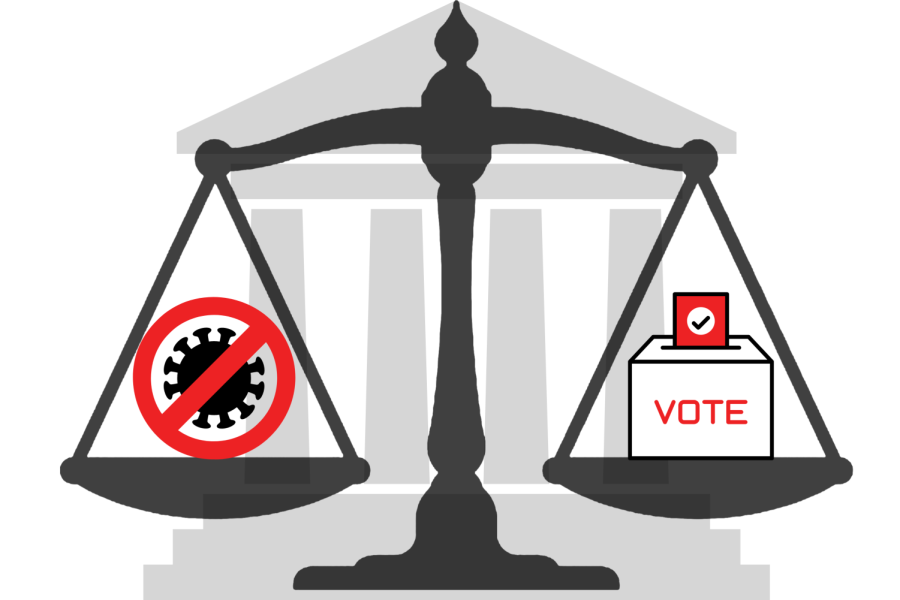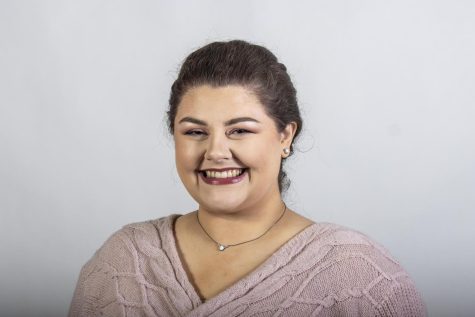Political science professors weigh in on state mask mandate
February 16, 2022
Eastern’s political science professors, Ryan Burge and Karen Swenson, weigh in on Governor J.B. Pritzker’s latest change in the state’s indoor mask mandate.
Illinois Governor J.B. Pritzker announced on Feb. 9 a plan to lift the indoor mask mandate by Feb. 28 everywhere except where its federally mandated, privately mandated, schools or other “vulnerable” places if current decreases in hospitalizations from COVID-19 continue.
Illinois currently has the largest decrease in COVID-19 hospitalizations since the pandemic began and the largest population rate of vaccinated citizens in the Midwest.
However, following Pritzker’s announcement, many began to speculate if Pritzker was making this change because of the improved COVID-19 rates or if it was a political move to gain more popularity for the upcoming election.
Ryan Burge, assistant professor and graduate coordinator, said the reason for Pritzker’s plan to lift the indoor mask mandate is a combination of the upcoming election and the improved COVID-19 numbers.
“I think Governor Pritzker’s policy change was based both on politics and how conditions have changed on the ground regarding omicron,” Burge said.
Burge’s first reason for Pritzker’s announcement is from the COVID-19 data.
“The data is pointing to the fact that the omicron surge is essentially over now,” Burge said. “Case counts are down 80 percent from their peak and continuing to fall in many places.”
The second reason is the public’s current feelings towards masks.
“People are just sick of wearing masks,” Burge said. “No matter how much a government tries to get its citizens to do something, they can always refuse – and many of them are. And, from a policy standpoint, if a government wants its citizens to wear masks ever again, it needs to demonstrate that those are short-term measures to stop the spread of a virus.”
The final reason for why Pritzker announced a lift of the mask mandate.
“His reelection does play a role; I’m sure,” Burge said. “But, he’s not ‘doing it alone’ on this. Several other Democratic governors have moved the same direction in places like California and New York. It would be very difficult to explain politically why Illinois was the only state in the union with mask mandates when none of our neighbors do. I don’t think it’s going to make a huge difference come election day, which isn’t for over eight months, but Pritzker will likely tout his handling of the pandemic as part of the reason he should get a second term in office.”
Karen Swenson, political science professor for the pre-law program, agrees with her colleague that both the COVID-19 numbers and the upcoming election affect Pritzker’s choice.
“I think it is both,” Swenson said. “This is the year he faces reelection.”
Swenson explained how governors look at other governors to see what they are doing before making a decision.
“In addition, in state politics, it is common for governors to look to other states in the region and to what other governors of their party are doing,” Swenson said. “Pritzker’s position follows both trends.”
Swenson continued by bringing up Pritzker’s past motives for decisions.
“And recall our governor and our state was a leader in mask mandates and closing places of public accommodation early in the pandemic,” Swenson said. “I don’t think Pritzker is afraid to do what is necessary even when it is not politically popular.”
Madelyn Kidd can be reached at 581-2812 or at [email protected].




















































